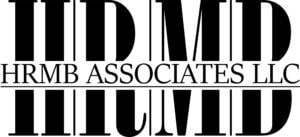Tax planning in retirement can be challenging if you don’t know what you are doing, how you can save your taxes, or the loopholes during the planning time. A real estate agent will always tell you to sell your property and that it is a good time to sell it, but this time they may be right.
The housing market is in demand lately, and houses are being bought at higher prices than the asking price. The interest rates are predicted to stay low for the foreseeable future, meaning the sellers will face no issues finding buyers for their property. However, it is crucial not to purchase without first checking how a sale will adjust to your tax plan.
The present-day market makes it the perfect time to find a smaller and more manageable home. However, you should always ensure you get the highest value for the home you’re selling. It is especially vital to ensure that you can save as much money as possible to ensure that the home sale proceeding can cushion help you during your retirement days.
One way to do that is by lowering the taxes you would be bound to pay on the profits from the home sale. The federal government provides a tax break to help sellers save much money: the primary residence exemption.
What Is The Primary Residence Exemption?
During the year 1997, Congress passed an act known as the Taxpayer Relief Act. This tax act introduced some new tax credits and reduced certain taxes for the middle and lower-class people of America. Across the board, Capital gains tax and several popular programs were established, such as the Education Credits, Roth IRA, and Child Tax Credit. Tax planning in retirement is compulsory.
One of the biggest breaks that homeowners ever received was because of the primary residence exemption act. Under section 121 exclusion, homeowners with a single home can subtract $250,000 from their capital gains of the sale of a home as long as the home was their main residence. The capital gains exclusion will increase to $500,000 for married couples filing jointly. We will tell you about a few restrictions on this exclusion later. But acquiring a tax break on the initial $250,000 of capital gains is a remarkable boost to many homeowners.
Let us give you an example to help you understand this better. Suppose a homeowner buys a house for 250,000 in the year 2017. Due to the sudden influx in the downtown area, the value of houses increased from a significant amount of $300,000 to $400,000 in just a matter of years. After getting the new job out of the state, the owner decides to sell the house. After selling the house, the owners get a profit of $200,000 capital gain. And because of the primary residence exemption, the owner does not have to pay a single penny in capital gains taxes on the sale.
Limitations And Rules
To qualify for this exemption, you will have to meet certain qualifications. To begin with, you can use this exemption only once every two years. If you own two houses and sell them both within two years, you can only be eligible to claim the exemption on one sale. You’d also have to pass the eligibility test.
A five-step eligibility test determines if a home sale is eligible for the primary residence exemption. The eligibility test prevents property owners from taking advantage of the tax break on multiple sales in a short period. The five steps for determining eligibility are as follows:
Step:1
Automatic Disqualification – If you purchased the home through a 1031 exchange (swapping one property for another) or if you are subject to the expatriate tax, you will be automatically ruled out from using the exemption.
Our Related Blog:- Personal Bookkeeping Service: Here’s Everything you must know
Step:2
Ownership – You must have owned the home for at least two of the previous five years. The years do not have to be consecutive, but you must have owned the home for at least 24 months during the 5 years. To qualify for the exemption, only one spouse in a married couple must claim ownership of the house.
Step:3
Residence – This is the step that many people get wrong. You must have spent 730 days in the house in the previous five years to qualify for the exemption. Much like the ownership qualification, spending consecutive days in residence does not matter, but the 730-day total must be completed for the home to be certified as a ‘primary residence.’ In a married couple, to get the full tax break, both partners must meet the 730-day requirement.
Step:4
Review The Restrictions – Have you claimed the exemption on selling one other home within the past 24 months? If you are saying yes, you would have to wait two years before being able to claim the exemption again.
Step:5
Exemptions – There are exceptions to the rules, as with all government programs. For instance, all the armed forces members away on active duty can waive the two-year residency requirement if their jobs stop them from living in the houses. See the IRS website for Publication 523 for more cases of exceptions to the eligibility test.
Partially Excluded From The Primary Residence Exemption
If you are unsuccessful in passing the eligibility test, do not give up; you might still be able to claim a partial credit on the capital gains tax exclusion for primary residence sales. The IRS lists down three primary reasons for home sellers to claim a partial exemption under the primary residence exemption:
- Work-Related Move- If you have to put your house up for sale because you need to relocate for work, you could claim a partial exemption if your new work location is more than 50 miles away from your home than the previous work location.
- Health-Related Move- If you had to move to care for a sick relative or get treatment for your illness, you might be eligible for a partial exclusion. Furthermore, suppose a medical professional is the one who proposes that you relocate because of health concerns. For example, moving out and selling the house to go and live in an assisted living facility. In that case, a partial exemption is still an option for you.
- Unforeseen Situations- If your last house was condemned or if it was destroyed during a natural disaster, you might be qualified for getting a partial exemption. Other situations where a partial exemption is still on the table include the lack of ability to pay for necessities, death, loss of job, and divorce.
You will have to claim the capital gains on your tax return irrespective of whether you want the exclusion. There may also be times when you would want to forgo the exemption completely. Before you claim your primary residence exemption (or any of the exceptional tax breaks), make sure that you consult with an advisor and ensure that it fits into your overall financial tax planning.
Tax Planning Services With Advanced Retirement Strategies
The Certified Public Accountant (CPA) does not generally help with tax planning work. They can be depended upon to produce your taxes, but they rarely have the time to consult with the clients and how the people can plan their finances for the next year or a successful tax planning in retirement.
Final Words
That is where HRMB Associates LLC comes into the picture. The team of experts at HRMB can assist you with tax planning services, such as tax planning in retirement or taking business and financial decisions to reduce tax frequency. Planning your taxes can help you manage finances in a better way for a better retirement.
You can get in touch with us today and learn everything you need to know about tax planning in retirement and how you can make the most of your time by connecting with us.


